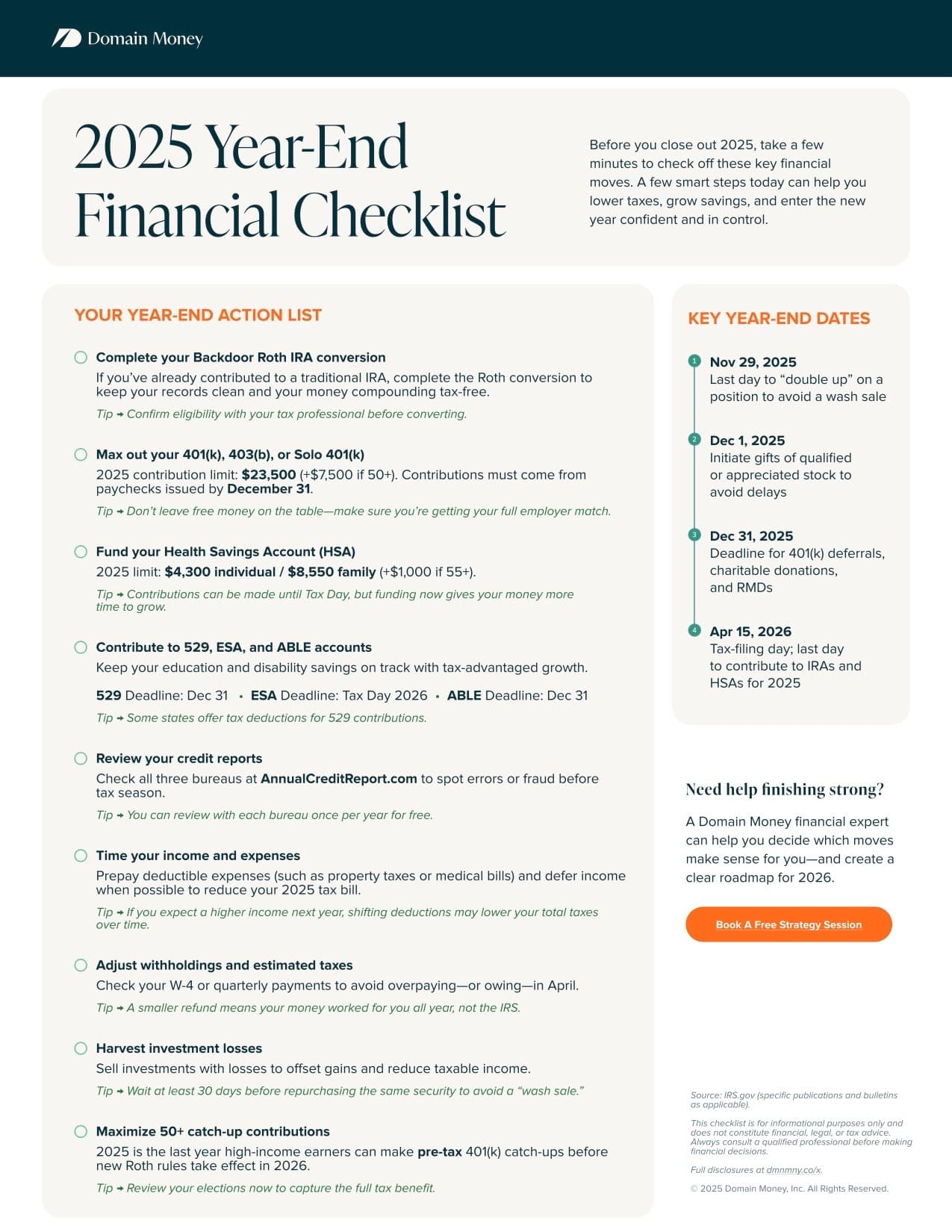If you’re new to investing and feel overwhelmed by the different types of accounts out there, look no further. In this article we’ll dive into taxable investment accounts, an often misunderstood option for beginners. Each type of investment account has its trade-offs, so it's important to understand how a taxable account works before deciding if it's right for you.
What is a taxable investment account?
A taxable investment account is an account opened with a brokerage firm or other financial institution, that allows you to invest in a wide array of assets including stocks, bonds, and mutual funds. As its name suggests, this type of account does not offer tax benefits. This means you’ll be taxed on any earnings or income you make in the account each year.
In comparison, many retirement-type accounts (like an IRA or 401k) have tax advantages that allow you to deduct contributions from your income, and defer any tax consequences until you withdraw your money from the account during retirement. So, why invest in a taxable account? Although this type of account lacks certain tax benefits, it offers other key benefits that retirement accounts do not.
Advantages of taxable investment accounts
Portfolio Options and Diversification: Taxable investment accounts can play a vital role in diversifying an investor's overall portfolio. While many tax-advantaged accounts offer limited investment options, taxable accounts can be used to invest in a wide range of assets. For example, many employer-sponsored retirement accounts, like a 401k, offer a select choice of investments. These options could include a mix of mutual funds and ETFs, however most plans offer less than 20 choices. In comparison, taxable accounts provide investors with the freedom to buy and sell almost any asset they choose, giving them greater flexibility and control over their investment decisions.
No Contribution Limits: Almost all tax-advantaged retirement accounts limit the amount you contribute each year. For example, in 2023 individuals under age 55 are limited to adding $6,500 to an IRA account per year. There are no contribution limits to a taxable brokerage account, so you are free to transfer any amount of money into the account.
Liquidity and Accessibility: Taxable investment accounts provide investors with easy access to their funds whenever they need them. Unlike retirement accounts that may have early withdrawal penalties or restrictions on when funds can be accessed, taxable accounts allow investors to withdraw their uninvested cash at any time without incurring additional taxes or penalties.
How are taxable investment accounts... taxed?
If you decide to hold your investments in a taxable account, you’ll be required to pay taxes each year on any interest, dividends, and capital gains you’ve earned. Taxation is slightly different for each of these items, so we’ll go through each below.
Interest: You may receive interest income in your portfolio if you own bonds, CD’s or money market funds. Interest income might be paid to you daily, monthly, or semi-annually depending on the type of investment you own. Most interest income is taxable at your usual income tax rate.
Dividends: You may receive dividends if you own shares of a public company in your portfolio. Companies usually pay dividends in the form of cash or stock to shareholders as reward for ownership. Dividends typically fall into one of two categories: ordinary or qualified dividends. Each type has slightly different tax treatment, so it’s important to speak with your financial advisor if you’re not sure how your dividends will be taxed.
Capital gains: Capital gains taxes are owed on the profits from the sale of most investments. It’s important to note that this tax is only owed when you sell an investment. For example, if you purchased a stock for $10, and sold it 2 years later for $30, you’d owe capital gains taxes on the $20 profit in the year you sell the stock. The rate at which capital gains are taxed depends on how long you hold the stock. You’ll receive a more favorable tax rate if you hold an investment for over one year. If you haven’t sold anything in your portfolio, you likely won’t owe capital gains tax.
The bottom line
Taxable investment accounts are an excellent tool for investors looking to build wealth over the long term. Unlike tax-advantaged accounts, taxable accounts do not offer specific tax benefits, but they provide investors with greater control, liquidity, and flexibility in their investment choices.
With this in mind, it's important to note that taxable accounts can complement other tax-advantaged accounts, such as IRAs and 401(k)s. By utilizing a combination of accounts, investors can optimize their tax strategies and diversify their investments across different types of accounts.
Remember, investing involves risk, and it's essential to conduct thorough research and consider your risk tolerance before making any investment decisions. A financial advisor can help you develop a comprehensive investment strategy that incorporates taxable accounts alongside other accounts in your portfolio. With careful planning and a well-diversified portfolio, taxable investment accounts can contribute significantly to your long-term financial success.


.jpg)






